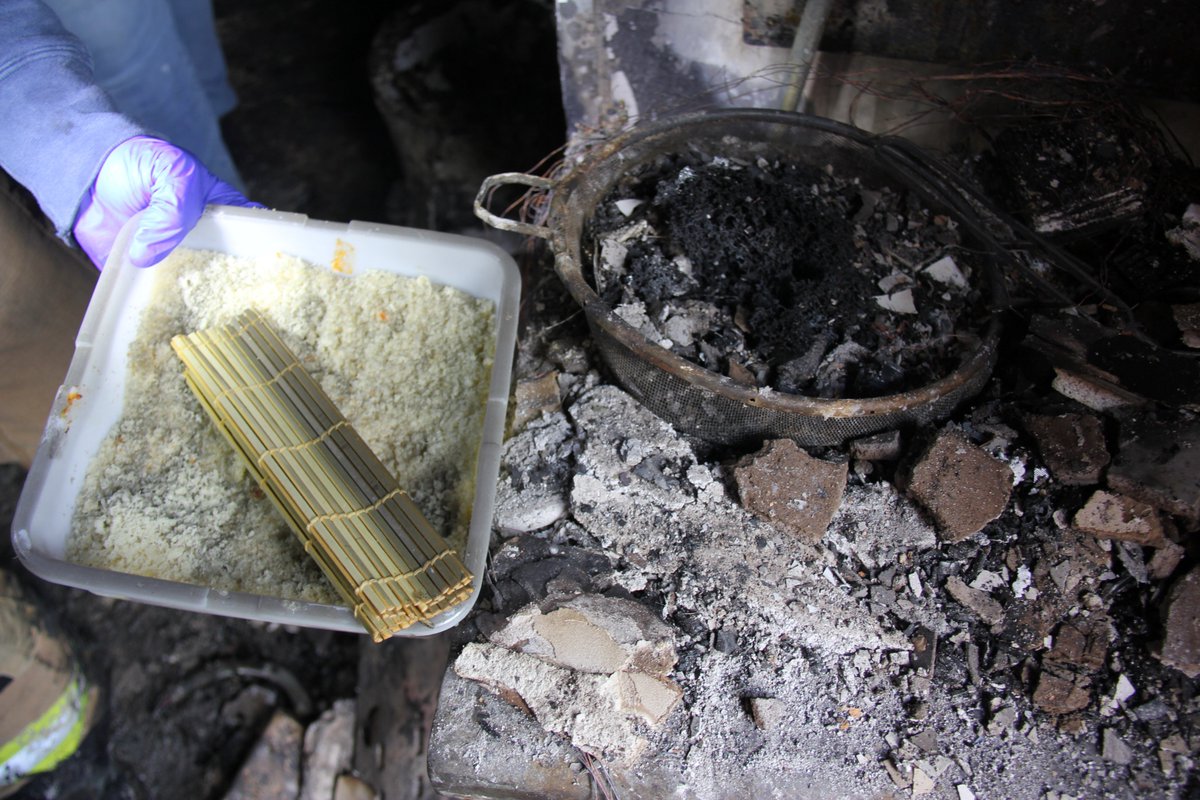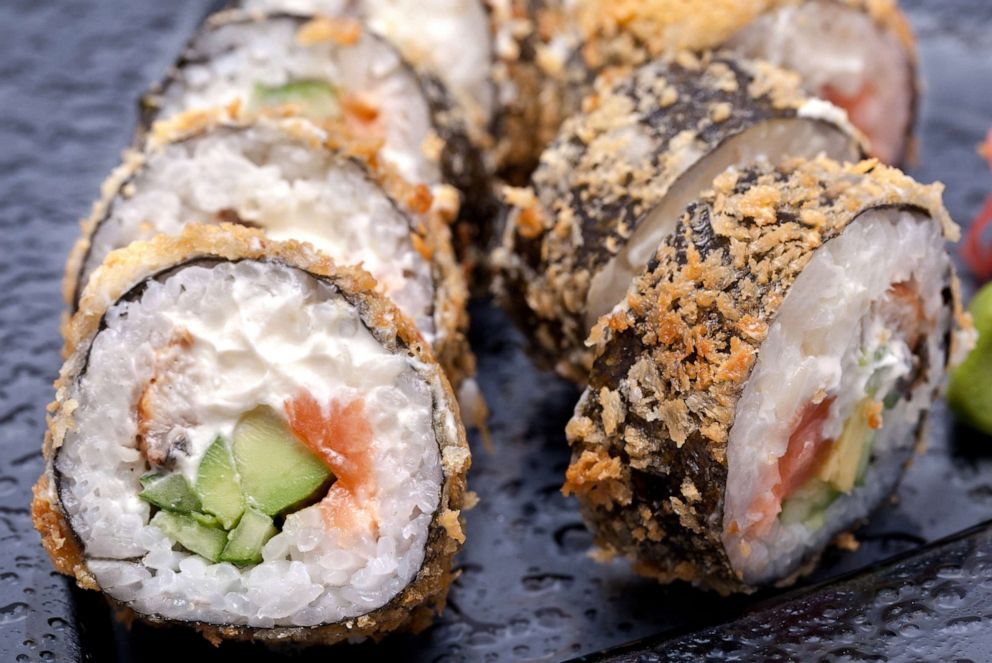Spontaneous combustion of tempura flakes blamed for sushi restaurant fires
Deep-fried tempura flakes were believed to be the cause of multiple fires.
A popular sushi ingredient is believed to be the cause of seven restaurant fires across the country, after officials discovered the product could self-heat and spontaneously combust.
The fires, five of which happened in Wisconsin, were the "result of a preparation technique" used to make deep-fried tempura flakes, commonly referred to as "crunch" but properly called tenkasu or agedama, according to a statement from the city of Madison's fire department.
The process to create the flakes involves using vegetable or soybean oil and deep frying the batter in patches before letting it cool in a bowl. However because the oils have the ability to self-heat, as the flakes cool off, the oil heats up in a contained environment, according to the statement.
"These conditions can create an environment for a fire to occur," the statement read.
Kara Nelson, a fire investigator with the Madison Fire Department, told ABC News Tuesday that surveillance footage from the fires confirmed the blazes started in a bowl with the tempura flakes. She compared the combustion to a similar process that can happen with oily rags.

"Let's say someone wipes the stain up with some rags. The oil will combine with the oxygen in the air and in that chemical process, it releases heat," Nelson said. "If the rags are bunched up and cannot dissipate then the environment for a fire to occur is created."
She noted that in making the tempura flakes, the process involves heating up the oil and placing them in a bowl to cool.
"You have an oil that can undergo spontaneous combustion and its heated, so we're helping the process," Nelson said. "And anything that is gonna keep that heat from being able to dissipate, it might raise to the point where a fire could occur."
Two of the fires, both at sushi restaurants in Madison, resulted in damages totaling around $575,000, according to the fire department. Neither resulted in injuries.
One blaze broke out at Sumo Steakhouse and Sushi Bar on April 5 at around 2:30 a.m. Firefighters entered the restaurant through a hatch on the roof and found the kitchen in flames. A sprinkler managed to prevent the fire from further damaging the building, and the restaurant has since reopened.

Another fire occurred on May 10 at the Madison restaurant Takara just before midnight. Firefighters were able to quickly extinguish the fire, though the damage was extensive. Takara remains closed.
Nelson said similar incidents have happened in St. Paul, Minnesota, and Ashburn, Virginia. The Bureau of Alcohol, Tobacco, Firearms and Explosives helped in each investigation.
She hopes the attention around the sushi ingredient will raise awareness to its ability to combust and urged anyone making the tempura flakes not to leave them unattended overnight and to lay them out flat rather than piled in a mound.
However, she noted that the combustion is only possible under specific conditions.
"We've got questions like, 'If we eat this are we gonna spontaneously combust?,'" she said. "And the answer to that is no. Vegetable oil and canola oil have the highest tendency to undergo spontaneous combustion, but it's not gonna do it sitting on the shelf."